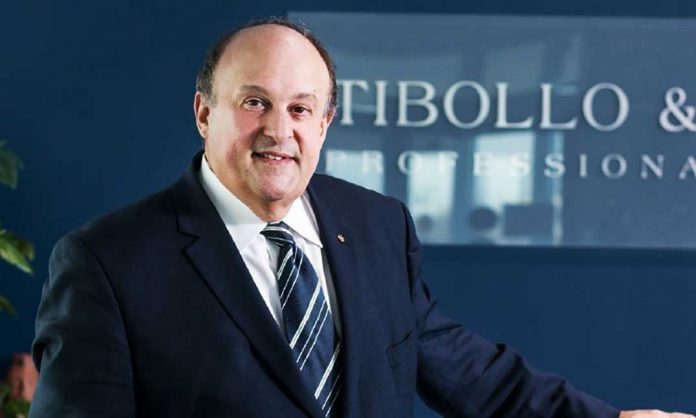TEHKUMMAH—The Township of Tehkummah joined the long list of Island municipalities that have opted-in to potential future cannabis sales in their regions at its regular council meeting last Tuesday.
“This is a bit of a moving target and the issue of opting in or opting out is just one aspect of what councils need to do,” Acting Clerk-Treasurer Roy Hardy told council upon introducing the discussion topic.
Conversations about cannabis have been prominent in municipalities across Ontario as they faced down the now-passed January 22 deadline, the date before which any requests to opt-out of cannabis sales needed to be submitted to the province.
The decision to opt in or out is tied with implications from provincial funding, which has complicated the issue. All Ontario municipalities will have $10,000 from the province to spend on costs associated with cannabis legalization such as public education in the form of campaigns or signage, increased costs for emergency first responders and enforcement.
An additional round of funding to come in March, however, is not guaranteed to municipalities that have opted out. In future years, cannabis revenue surpluses will be shared with opted-in municipalities but will not be available for those that have opted-out.
“It’s a cash cow. You’ve seen our [draft] budget here, how do you let $10,000 walk out the door?” said Councillor Rick Gordon.
Correspondence from the province that was included in the agenda package stated that the first round of 25 retail storefront licences would only be available to municipalities with populations greater than 50,000. Tehkummah and all other municipalities between Sudbury and Sault Ste. Marie are too small to even be considered for this April 1 set.
However, cannabis is still legal to possess within the municipality which will bring in additional considerations such as possible increases in enforcement costs.
“There’s no doubt it’s going to increase our policing costs. Just it being legalized is going to increase it because there’s going to be police stops, there’s going to be charges laid, which increases the costs. We know that’s going to happen,” said Councillor Michael McKenzie.
“I wouldn’t count on it,” said Councillor Gordon.
“If it’s legal, why would there be [higher costs]?” asked Councillor Eric Russell.
Councillor McKenzie responded, “because you can’t be driving under the influence. That’s going to be a charge that’s directly related, so we know that cost is going to be coming to us. There’s going to be minors that are using it that can be charged.”
“But the minors are using it now,” said Councillor Russell.
“Yes, but don’t kid yourself, the use is going to go up when it’s legalized,” responded Councillor McKenzie.
Councillor Gordon offered an alternative perspective.
“It’s already legalized and there’s been no proof. In fact, what I’ve heard is there’s been no upswing on impaired driving charges because of pot, or other stuff. So I think the sky’s not falling.”
One of the later discussion items at the meeting was the need for smoke- and vape-free signage at public locations, a new requirement since the October 2018 legalization of cannabis. Townships are now required to put such signage at public buildings, sports and recreation facilities and playgrounds.
The above-mentioned $10,000 payouts from the province to help cover cannabis legalization costs could be used towards initiatives like signage, so Mr. Hardy recommended staff to get quotes for the signage and come back to council, where they could then determine if the funding would come from the general township budget or from the provincial funds.
Mr. Hardy steered the topic towards a more forward-thinking direction as part of the cannabis discussions.
“If councils decide not to opt out but to keep their name on the list [for the future], one of the things they’ve suggested the council do is pass a bylaw which basically gives some advance information to the province, so if there ever was an individual, corporation or people who wanted to operate a retail operation in the township, that it would have a policy saying, from the township’s perspective, these are the areas or restrictions we think you’d need to put on in our township,” said Mr. Hardy.
The purpose of this document would be to give the province a sense of what the township’s concerns may be in the future, which would assist in the licencing screening process during future rounds of approvals.
“My suggestion is that basically, we keep in the position where we start working on having that discussion in the community and with the community,” said Mr. Hardy. “The next step to me would be that we start to work on what that policy would look like, that we can forward to the province and say if an application were out there, here’s what our concerns are and here’s what we would want you to put as restrictions on allowing a licence in the township.”
At the end of the discussion, Reeve Jaggard called for a vote. Councillor McKenzie was the lone vote against opting-in for cannabis retail sales in the township.
Given the circumstances surrounding the licence application process, the likelihood of Tehkummah getting a retail outlet is not particularly high. However, with the future cannabis policy statement soon to be developed, the township will be in a much better place if and when that day should come.
Burpee and Mills has recently opted into allowing cannabis retails stores as well, citing some of the same funding reasons as Tehkummah.
“We’ve opted in,” said Reeve Ken Noland after a recent council meeting. “What choice did we really have? If the government is basically taking money from one hand if we didn’t opt in, and will provide funding if we opted in, we’d better get the other hand in. We opted in, although I don’t know what is going to happen after two years.”
“At least by opting in we will receive a few dollars to be used held with everything that is involved in cannabis involvement (such as education, enforcement, policing and bylaw enforcement),” said Reeve Noland.





